New Cook Islands Legislation: Fine Tuning the Law
Volume V, Number 4 – November/December 1996
INTRODUCTION
In late November, the Cook Islands government enacted a significant amendment to the International Trusts Act 1984 (the “Act”). The new legislation enhances one of the most comprehensive asset protection laws in existence. In this issue we will highlight the more important changes to the law.
PERPETUAL TRUSTS
The new law abolishes the common law “rule against perpetuities”. This means that a “dynasty” trust can now be established in the Cook Islands. Thus, you can establish a trust in the Cook Islands which will continue indefinitely. You can also specify that the trust will terminate on a specified date, or terminate upon the happening of a specified event. In addition, the new law permits the trustee tovary the termination date of the trust, although such a variation can only be implemented with the prior consent of a specified “interested party”.
TITLE TO TRUST PROPERTY
Under traditional trust law, a trust was not regarded as an “entity” (as, for example, a corporation is), and therefore did not take title in its name to property transferred into it. Rather, title to property conveyed into a trust was structured in the form: “A, B, and C, as trustees of the Jones Family Trust, under agreement dated 12/12/96”. The new Cook Islands legislation permits title to property conveyed into a trust to be taken in the name of the trust, e.g., “Jones Family Trust”.
GOVERNING LAW
Under prior law in the Cook Islands, a trust was not eligible for the benefits of the Act until it was registered as an “International Trust”. The new law permits the Act to apply to a trust if such applicability is specified in the trust’s governing law provision, provided the trust is registered in the Cook Islands within 45 days of its execution (or within 45 days of the time any aspect of the trust is to be governed by the Act).
FRAUDULENT TRANSFER LAW
Significant clarifying changes have been made to the Cook Islands fraudulent transfer statute. This fraudulent transfer law forms a core provision of the protective aspects of the Act. The most important change to this provision is one which addresses a problem in the prior legislation which was brought to light in a recent case, popularly known as the “Orange Grove Case”.
In that case, the creditor obtained a monetary judgment in his principal case against the trust settlor. The creditor was unsuccessful in attempts to collect on that judgment, and subsequently brought a fraudulent transfer action. Since the fraudulent transfer statute of limitations in the Cook Islands depends upon when a creditor’s “cause of action accrued”, confusion arose as to which cause of action the statute referred to: the cause of action representing the creditor’s case in chief (which was outside the statute of limitations), or the cause of action resulting from the creditor’s fraudulent transfer action (which was within the statutory limitations period).
The change in the law makes it clear that in such a case, where there is a relation between two causes of action, the claimant’s cause of action is deemed to have arisen on the date on which the earliest of the related causes of action arose. In addition, other improvements were made to the fraudulent transfer statute, including a clarification and broadening of the scope of the statute to include claims wherein fraud, deceit, unconscionable conduct, or any other inequitable conduct is alleged.
TRUSTEE PROVISIONS
Extensive new provisions are included in the Amendment which address the duties of trustees to beneficiaries, the delegation of trustee duties, investment standards, limitation of trustee liability, custodian trustees, and trust advisors, among other things.
The new provisions recognize the realities of life and make the administration and operation of the trust comport with real life situations. For example, the amendment allows trustees (if permitted by the trust instrument) to delegate all functions except dispositive powers.
An extremely forward-looking and flexible provision contravenes the historically restrictive nature of a trustee’s powers of investment by providing the trustee with the investment powers of a natural person. Of course, more restrictive powers may be specified in the trust instrument.
Finally, the new law contains extensive provisions regarding custodian trustees, essentially enacting into Cook Islands law the custodian trustee law of New Zealand. A custodian trustee holds title to and has possession of trusts assets, while a “managing trustee” will make all decisions regarding the management and administration of the trust. Such a bifurcation of the trustee role can be especially useful in a properly structured asset protection trust, particularly where the managing trustee and the custodian trustee reside in different countries.
For example, a claimant seeking redress against trust assets would ordinarily bring an action against the trust (assuming an appropriate legal theory existed upon which the claimant could proceed) by naming the managing trustee as the defendant on behalf of the trust. The trust instrument could provide that in such a circumstance, the managing trustee is automatically removed as trustee, thus vesting the management of the trust in the custodian trustee – in another country.
What would this mean to the claimant? Start all over again with the litigation in the custodian (now sole) trustee’s jurisdiction! In addition, the Cook Islands law provides that the custodian trustee is the proper party to be served in any event.
CONCLUSION
The Cook Islands remains in the forefront of asset protection jurisdictions by continually reviewing and enhancing its protective legislation.
Donlevy-Rosen & Rosen, P.A. is law firm with a national practice focused on asset protection planning and offshore trusts. Attorneys Howard Rosen and Patricia Donlevy-Rosen co-founded the firm in 1991, and have since become internationally recognized authorities in the field of asset protection planning. Send a message using our contact page






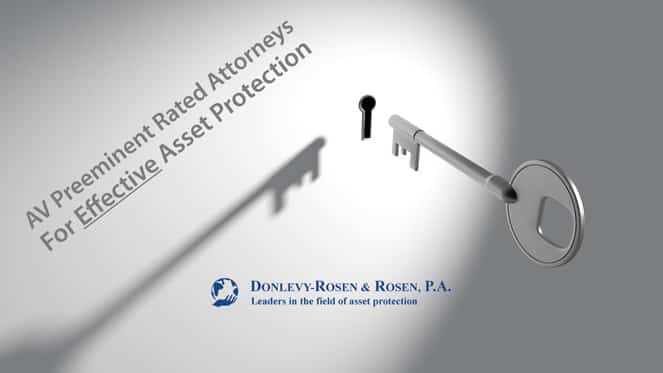


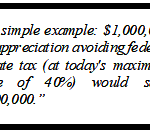
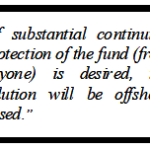



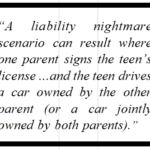
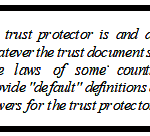
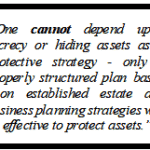

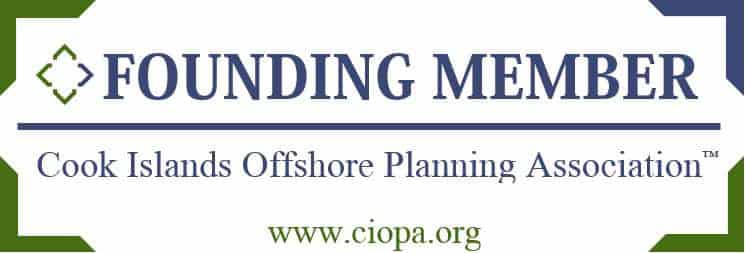
Connect
Connect with us on the following social media platforms.